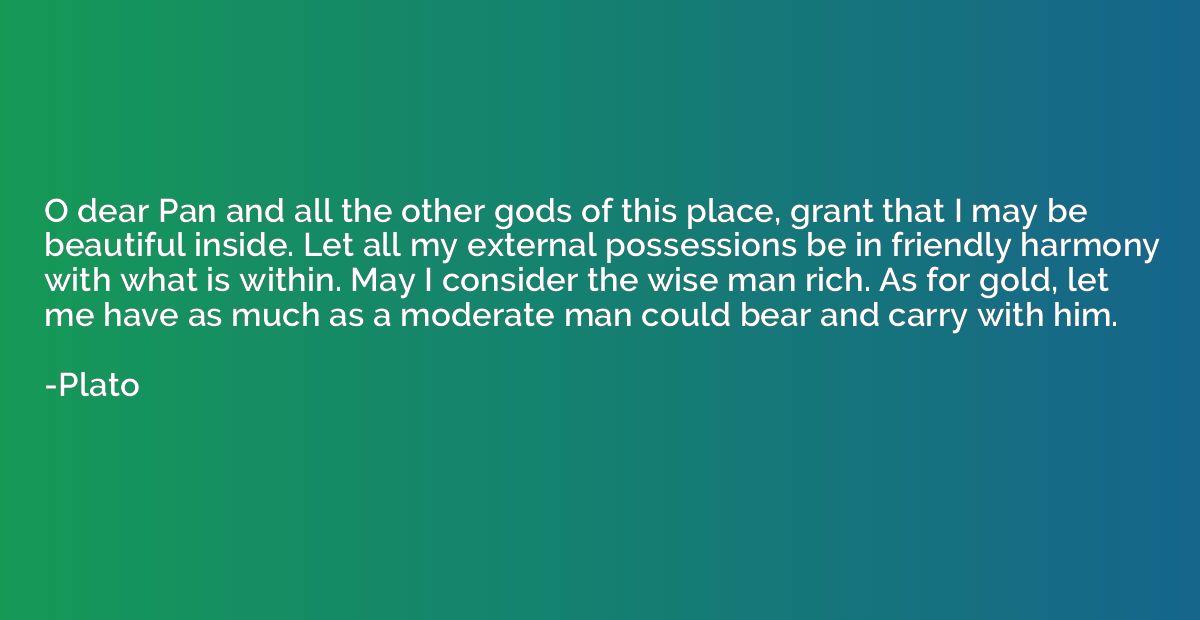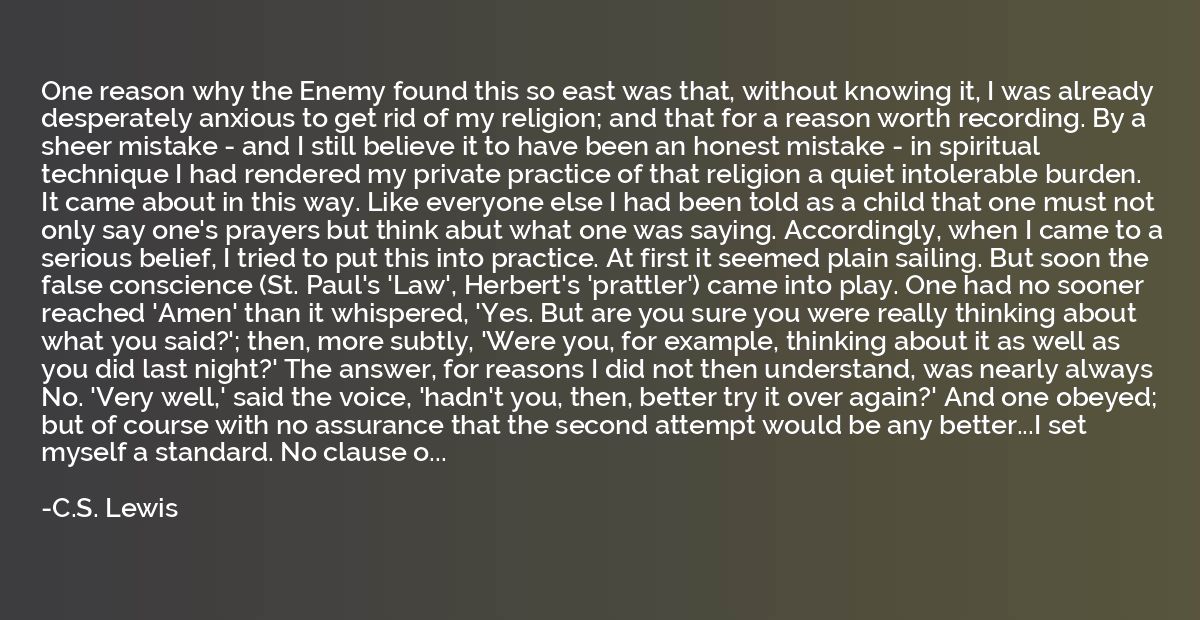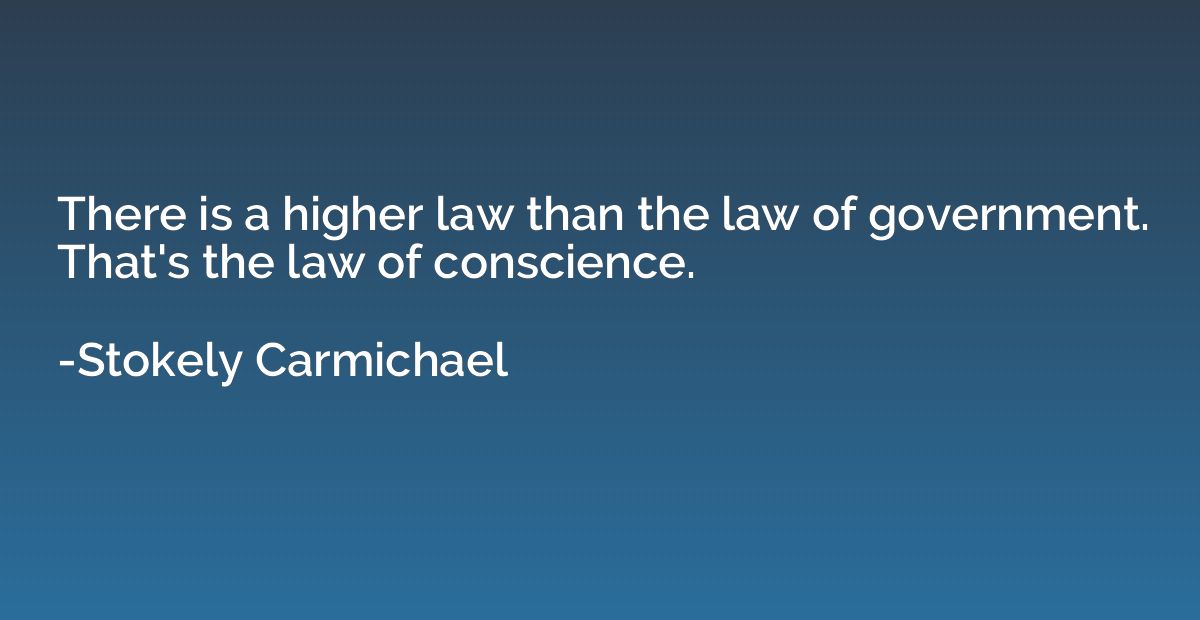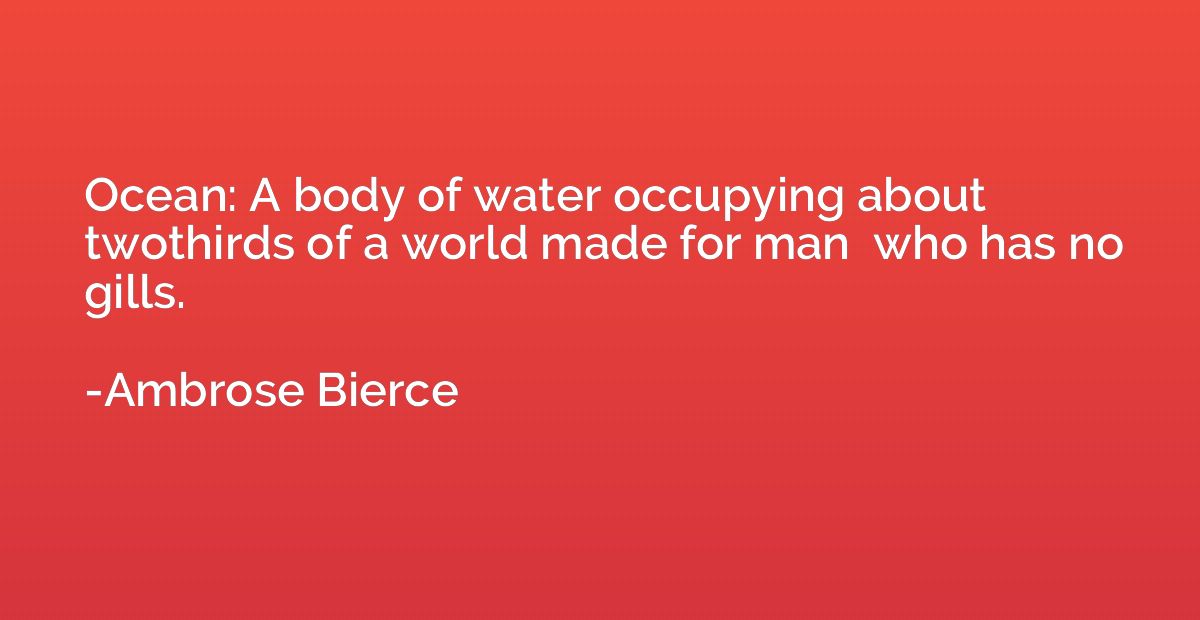Quote by Plato
O dear Pan and all the other gods of this place, grant that I may be beautiful inside. Let all my external possessions be in friendly harmony with what is within. May I consider the wise man rich. As for gold, let me have as much as a moderate man could bear and carry with him.

Summary
In this quote, the speaker appeals to Pan and the other gods, wishing for inner beauty and harmony to match their external possessions. They prioritize wisdom and inner wealth over material riches, expressing a desire for only as much gold as one can handle without being burdened. The quote implies a desire for balance and contentment, showcasing the significance of inner virtues and a modest approach to wealth.
By Plato














